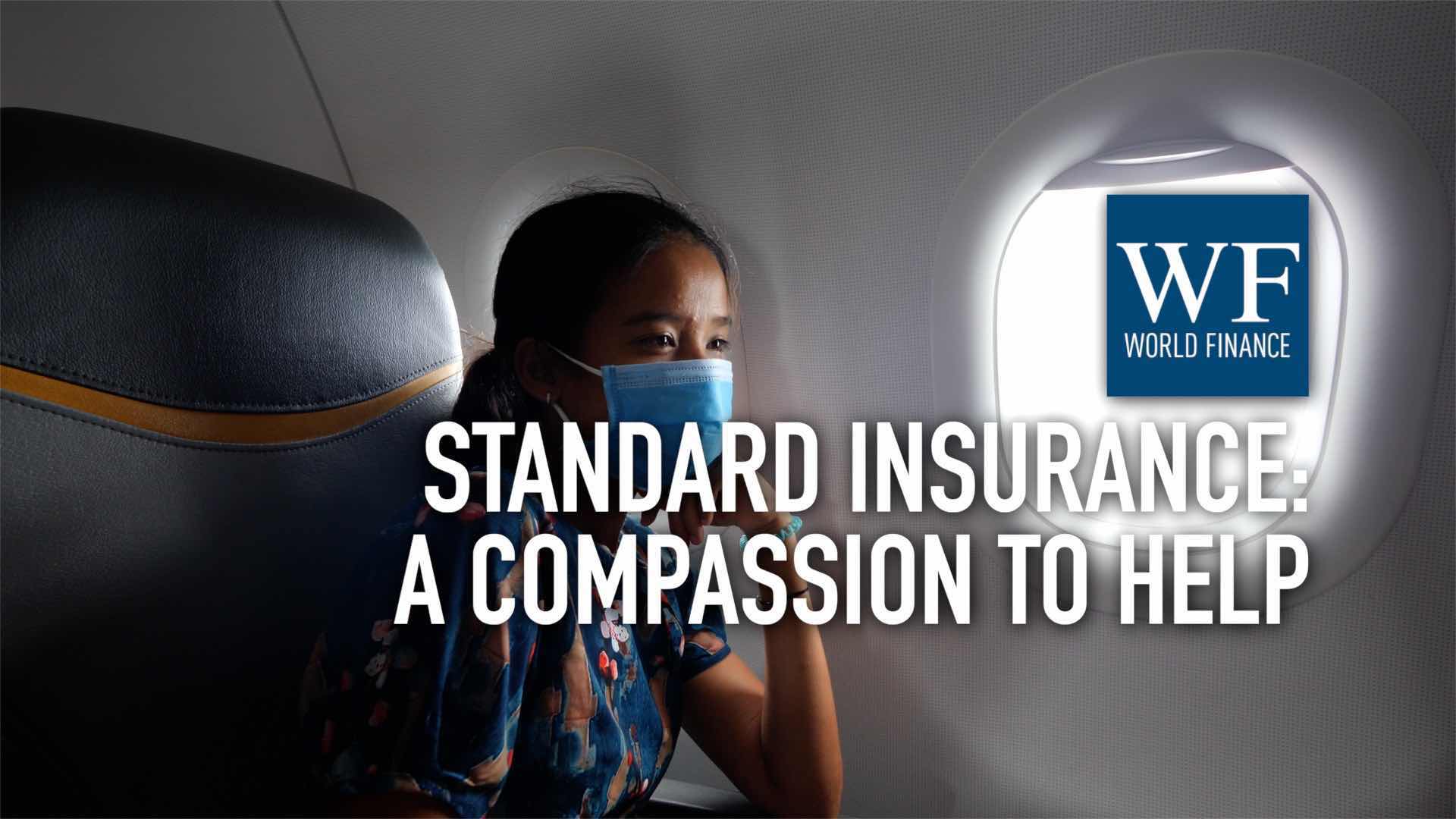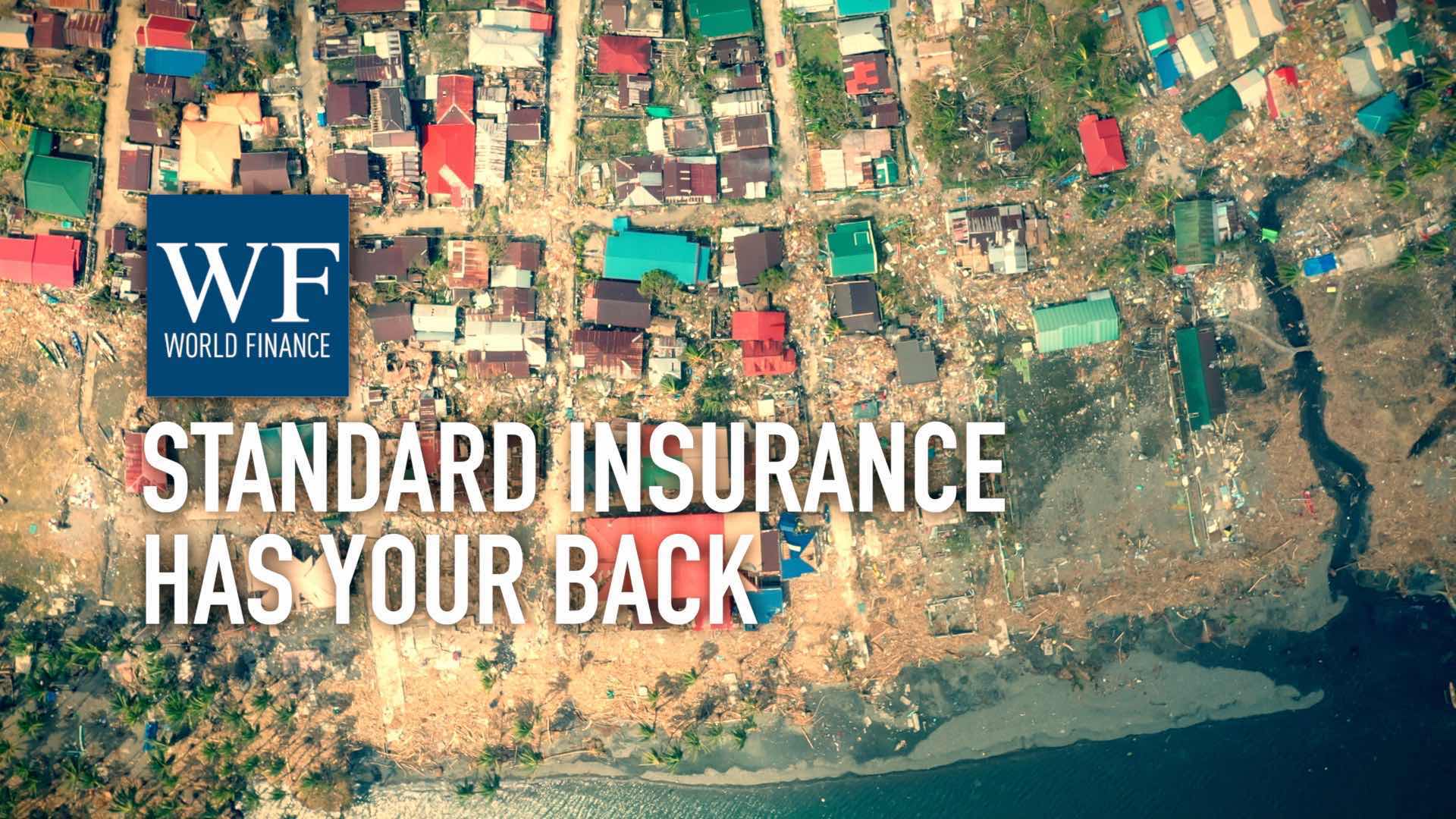Standard Insurance CEO: ‘Products of tomorrow may look like toys today’
John B Echauz explains why the Philippines insurer is committed to experimentation and innovation
Related:
Transcript
Standard Insurance is one of the leading non-life insurers in the Philippines, and the country’s largest car insurer. The Philippines is ranked fifth in the long-term climate risk index, so it really is at the sharp end of risk management. John B Echauz, Standard Insurance’s president and CEO, explains the challenges that insurance companies are facing today, the ways his company is adapting, and the innovative products it’s bringing to market in order to be ahead of the curve of customer expectations and disruptive competitors.
World Finance: John, what are the big challenges you face as a general insurance provider today?
John B Echauz: All major insurers are going through the same thing. Number one: competition. It’s not going away any time soon. Prices are coming down, rates are coming down, margins are getting compressed.
Number two: catastrophic events. Climate change is here to stay. The return period of a bad typhoon used to be centuries, then decades, now maybe years.
Third would be disruption. Customers want new things. Is our team prepared to provide them these things, or will they be provided by new companies that are not even on our radar screens today?
Number four of course: the business cycle. Things aren’t always good; when will it turn bad again? When is the turbulence going to hit?
These four things are our reality. We deal with them every year. So the question is: what must we do to adapt? How do we take our tools, take our people, take our know-how, to convert these into opportunities?
World Finance: Answer that question for me: how has Standard Insurance adapted to overcome or mitigate these challenges?
John B Echauz: The first order of the day is to take care of our customers very well, today. That’s very important. With no customers today, there is no future to speak of.
Number two I would say is to keep our operating systems contemporary and modern. They must be ready all the time to meet the needs of customers today, and tomorrow.
Number three: we take number one and two, and try to do it outside the Philippines. Our group chairman is an avid fisherman, and he knows what it means to look for new fishing grounds. We’re always up for a new adventure.
Number four: we take bits of everything we’ve learned, and how do we make these into new commercial enterprises? The products of tomorrow may look like toys today, so we need to make sure that all those things we can convert into something that is viable for the future.
And number five I would say is, follow our instincts. As businesspeople, as entrepreneurs: they should lead us to very good things.
World Finance: The toys of today that may be the products of the future: what innovative products are you bringing to market?
John B Echauz: We’ll talk about three things that we kind of like.
The first one is our technical centre. It’s a seven hectare facility to take on vehicles that should be total losses. But in this case, no: we can fix them, and minimise our costs. So if you have a total loss vehicle, it would otherwise be scrapped, we can restore them here. Interestingly we take the vehicles that don’t get resold and we can chop them up and sell the parts online.
Number two is we have an insurance policy that’s bundled with a term life insurance policy. Back home, many people have car insurance, but many people don’t have life insurance. Term life… no one really wants to sell it anymore, but it’s a good product, it’s affordable. So what we do is we bundle the two – motor and term-life – and then it makes it easier for our customers to have life insurance cover.
Number three is for climate change. So, every car generates about two tonnes of carbon dioxide. We have a service: pay us an extra $20 and we will plant enough trees to offset your carbon footprint. That’s about one hectare.
It’s important for us that we try these things. Some of them work, some of them don’t work. But we have to try. We want to make sure that we don’t miss any major trend.
World Finance: Is this helping you grow? And how are you keeping your variable costs low?
John B Echauz: So far so good. But, we look at our total cost per policy, which means its variable cost and fixed cost.
The first thing to keep variable costs and fixed costs low is to keep our people happy. We have to make sure that each associate feels loved, invested in, engaged. Then everything is possible. Sales go up, waste goes down; and each one is able to contribute to create programmes that will make our company better, and keep variable costs low.
World Finance: And what else does the future hold for Standard Insurance?
John B Echauz: We don’t know what the future will bring for us, but what I find is that the better we are to our people and to our partners and to our customers, the opportunities come.
Having a nice conversation with someone, whether the person is in Manilla, or in a province, or here in London; it leads to many, many new things.
The things we can predict, I would say, on the best day will be just 30 percent. The 70 percent are the things we can’t predict. Of those, half can be considered threats, but half can be considered very good opportunities. So that’s how we roll.
World Finance: John, thank you very much.
John B Echauz: Thank you very much.

 Standard Insurance: ‘It’s our life purpose to really be there for you when we’re needed’
Standard Insurance: ‘It’s our life purpose to really be there for you when we’re needed’ Peace of mind for all mankind: How Standard Insurance takes on the challenge of Filipino NatCat
Peace of mind for all mankind: How Standard Insurance takes on the challenge of Filipino NatCat
